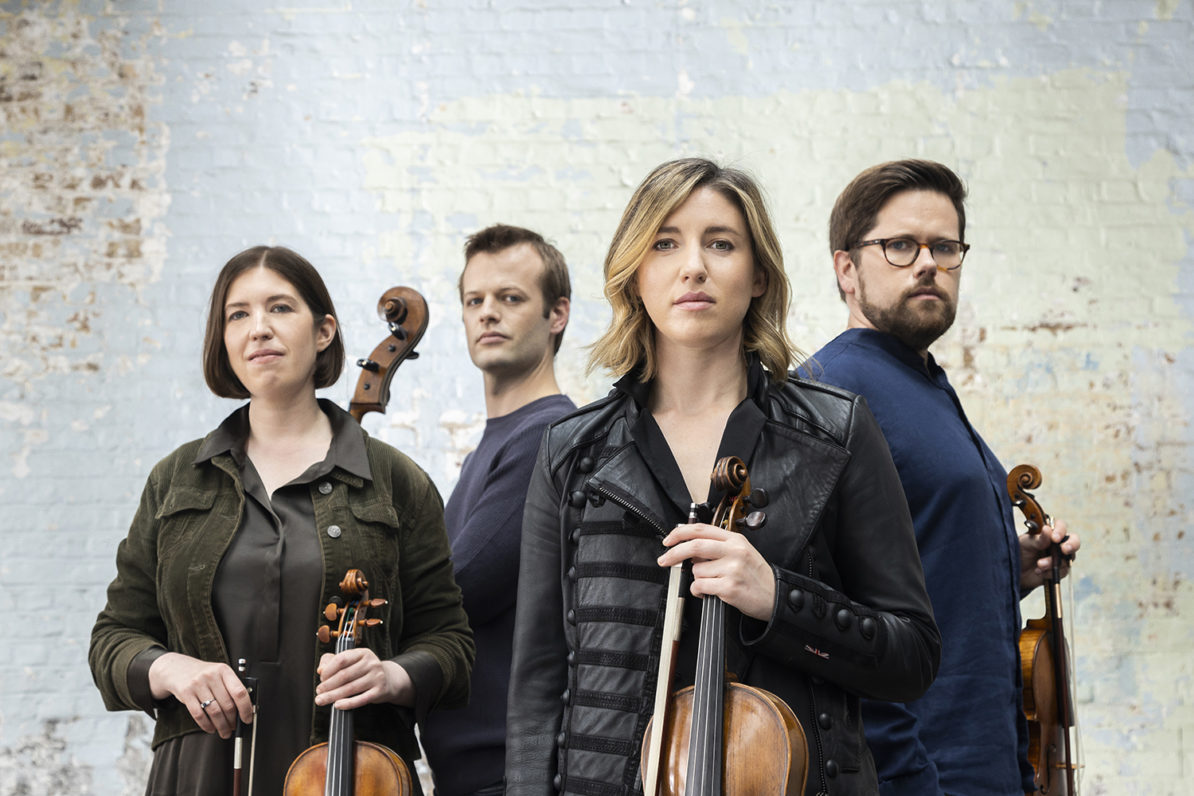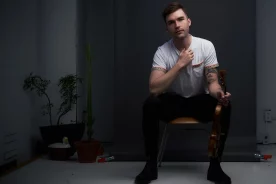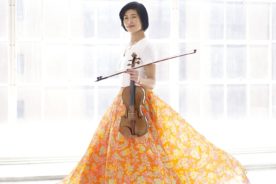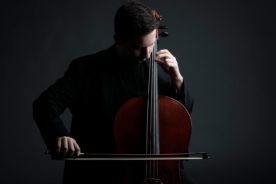Friday, November 5, 2021 - 7:30 PM
Making its series debut, this young Franco-British quartet has already performed at Carnegie Hall and other major halls around the world. After their performance in London’s famed Wigmore Hall, The Guardian described them as, ‘a feisty group with a real personality and strong interpretative ideas.’
Beethoven: D-major Quartet, Op. 18, No. 3
Mendelssohn: F-minor Quartet, Op. 80
The Walter W. Goodwin Concert
No Intermission – Program is approximately 65 minutes.
Massry Center for the Arts
1002 Madison Avenue
Albany, NY
General Admission seating – doors open 45 minutes before concert.
All kids and college students admitted free at door.
Ticket information and COVID protocols
Hailed for their ‘powerful individuality of sound’ and ‘instinctive singularity of musical intention’ (The Scotsman) whose performances are ‘full of poetry, joy and sorrow’ and ‘realised to such perfection’ (The Observer), the Castalian String Quartet are quickly emerging as one of the most exciting and in-demand quartets on the world stage.
Named 2019 Royal Philharmonic Society Young Artist of the Year, their recent and forthcoming highlights include debut invitations to Carnegie Hall, Vienna Konzerthaus, Paris Philharmonie, Auditorium du Louvre, Amsterdam Concertgebouw, Lucerne Chamber Music Society, Brussels Flagey, Tel Aviv Museum of Art, Saffron Hall, and the Aldeburgh, East Neuk, Spoleto, North Norfolk, Heidelberg Spring, Rheingau, Mosel, and Dresden festivals. The Quartet’s 2019-2020 Wigmore Hall cycle of Brahms and Schumann featured collaborations with Stephen Hough, Cédric Tiberghien, Michael Collins, Nils Mönkemeyer, Isabel Charisius, and Ursula Smith. In 2018, they recorded the complete Haydn Opus 76 quartets for the Wigmore Live label.
Formed in 2011, the Castalian String Quartet studied with Oliver Wille of the Kuss Quartet at the Hannover Hochschule für Musik, soon winning 1st Prize at the 2015 Lyon Chamber Music Competition and 3rd Prize at the 2016 Banff International String Quartet Competition. Their many influential teachers to date include Simon-Rowland-Jones, David Waterman, and Isabel Charisius. In 2016, the Quartet were selected by the Young Classical Artists Trust, and more recently were named recipients of the inaugural Merito String Quartet Award/Valentin Erben Prize and a 2018 Borletti-Buitoni Trust Fellowship.
In only a few seasons, the Quartet have made critically-acclaimed debuts at New York’s Lincoln Center, Banff International String Quartet Festival, the Vancouver Recital Series, Montreal’s Salle Bourgie, and The Philips Collection in Washington D.C. Other highlights include performances at the Hamburg Chamber Music Series, International Musikfest Goslar, Sommerliche Musiktage Hitzacker, and the Bath, Cheltenham, North Norfolk, Peasmarsh, and Winchester festivals. They were also the resident ensemble at the Esbjerg International Chamber Music Festival in Denmark. Their many notable collaborators have included Aleksander Madzar, Alasdair Beatson, Simon Rowland-Jones, Daniel Lebhardt and Olivier Stankiewicz.
When not on stage, first violinist Sini Simonen can be found hiking in the hills, second violinist Daniel Roberts follows his beloved Liverpool Football Club, cellist Christopher Graves makes bows and violist, Charlotte Bonneton, ties herself into impossible yogic knots. They take immense pleasure in performing for diverse audiences everywhere, from the world’s greatest concert halls to maximum security prisons and even a rainforest.
Castalian is derived from the Castalian Spring in the ancient city of Delphi. According to Greek mythology, the nymph Castalia transformed herself into a fountain to evade Apollo’s pursuit, thus creating a source of poetic inspiration for all who drink from her waters. Herman Hesse chose Castalia as the name of his futuristic European utopia in The Glass Bead Game. The novel’s protagonist, a Castalian by the name of Knecht, is mentored in this land of intellectual thought and education by the venerable Music Master.



